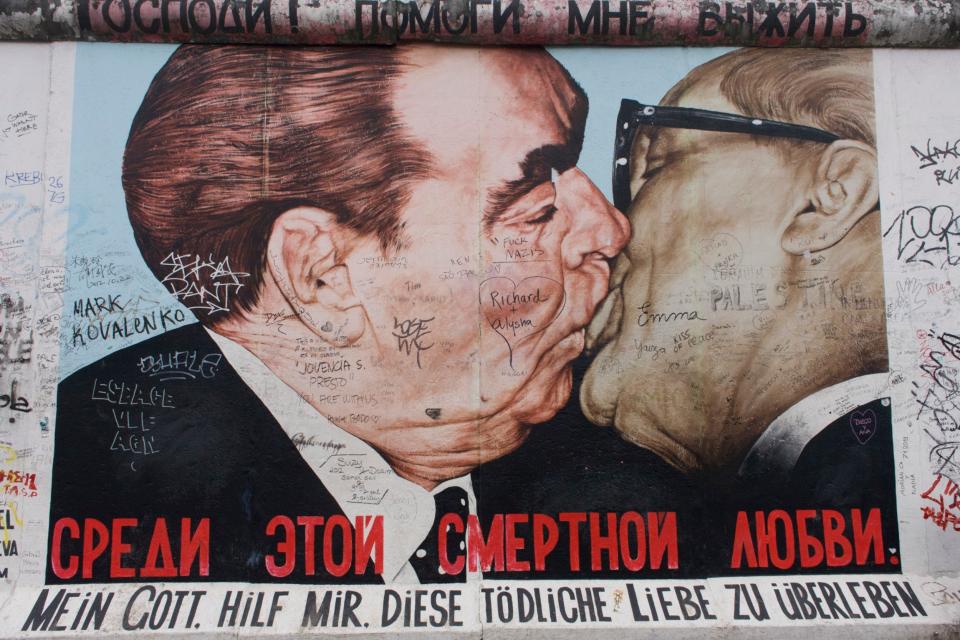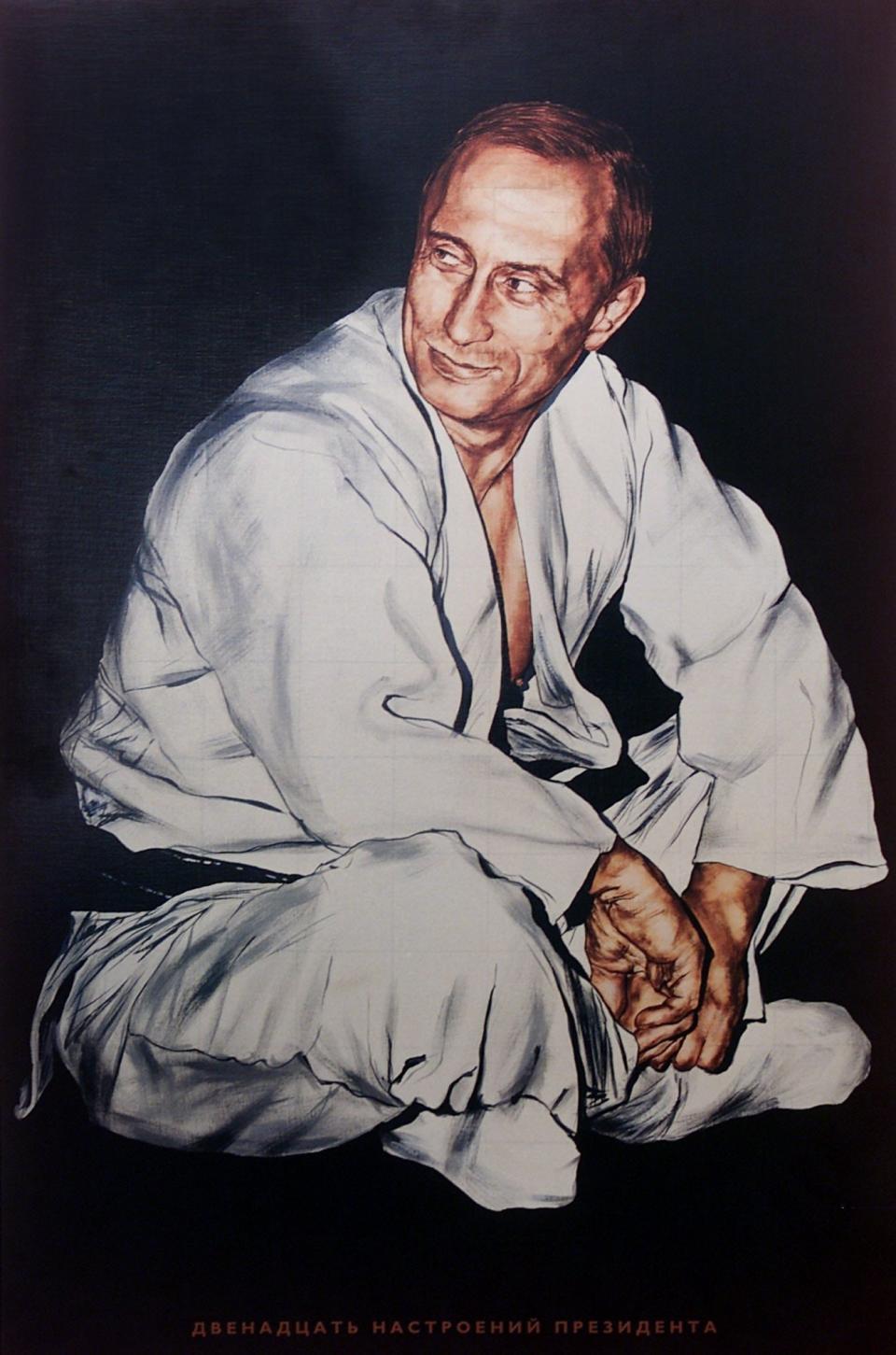Dmitri Vrubel, artist whose ‘Fraternal Kiss’ mural became famous around the world – obituary

Dmitri Vrubel, who has died aged 62 from complications of Covid-19, was the Russian artist responsible for “My God, Help Me to Survive This Fatal Attraction”, also known as “The Fraternal Kiss”, which became one of the best known pieces of graffiti art on the Berlin Wall.
The painting, a biting satire of Socialist Realism, depicts the former Soviet leader Leonid Brezhnev and East Germany’s former boss Erich Honecker in what appears to be a passionate embrace, reproducing a photograph taken in 1979 during the 30th anniversary celebration of the foundation of the German Democratic Republic.
Until the fall of the Berlin Wall in 1989 graffiti art existed only on the western side. Benefitting from East Germany’s new-found freedom, Vrubel painted his mural in 1990 on the eastern side.

The archives feature numerous photographs of Brezhnev kissing or attempting to kiss various world leaders; the ones who were under his thumb in the Warsaw Pact knew better than to do anything other than kiss back. However, the photograph with Honecker backfired spectacularly as, so enthusiastically did they express their Socialist Solidarity that it looked as though they were kissing mouth to mouth, rather than each other’s cheeks.
Vrubel’s stomach-turning painting expressed the popular sense of disgust towards the two hated despots and the corruption of east European communism, and photos of the painting went viral, featuring on coffee cups and T-shirts across Europe and beyond.
It inspired derivative works including, in Lithuania, a mural of Vladimir Putin and Donald Trump in a similar pose and, in Britain, a 15-foot mural in Bristol featuring Donald Trump and Boris Johnson. Painted in the run-up to the 2016 referendum, it bore the legend: “Not #InForThis? Register to vote on the EU Referendum now”.

Dmitri Vladimirovich Vrubel was born in Moscow on July 14 1960 and was a descendant of the 19th-century pioneer of modernism, Mikhail Vrubel.
Before moving to Berlin in 1990, Vrubel was a member of the Artists’ Union of the USSR and part of the Avant-Garde Club (KLAVA) art group in Moscow. He was heavily involved in the underground art scene and organised illegal exhibitions in his flat during the last years of the Soviet Union.
As well as his famous mural of Brezhnev and Honecker, Vrubel also adorned the east side of the Berlin Wall with a pensive portrait of Andrei Sakharov, the Soviet dissident and Nobel Peace Prize winner, labelled simply “Thanks.”
Vrubel’s dissidence had limits, however. In 2001 he and his wife Viktoria Timofeyeva created a large format calendar called “The 12 moods of Putin”, featuring mostly flattering portraits of the Russian president. It became a bestseller in Russia, especially with Kremlin officials who bought it for their offices and to give as gifts.

A senior official gave the calendar to Putin, together with the original oil painting of the December portrait, which showed the Russian leader in a thoughtful pose. “He apparently liked it very much,” Vrubel said. The president’s office also bought the original of the cover portrait showing Putin, a judo black belt, sitting cross-legged in his judo clothing.
Nonetheless, according to his wife, Vrubel was “tormented” by Russia’s invasion of Ukraine.
In 2009 Vrubel’s Berlin Wall painting was removed, along with others, by the city authorities after many of the murals had deteriorated from exposure to car fumes and vandalism. However the council paid the artist €3,000 to reproduce his work – the only profit Vrubel ever made from it. He donated the money to a social art project in the Marzahn district of east Berlin.
His wife survives him.
Dmitri Vrubel, born July 14 1960, died August 14 2022

 Yahoo Movies
Yahoo Movies 
